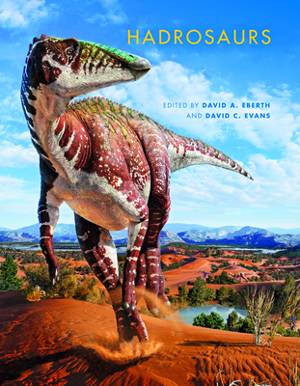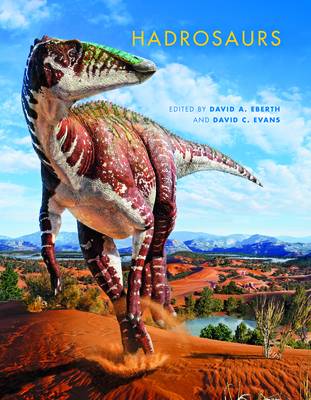
- Afhalen na 1 uur in een winkel met voorraad
- In januari gratis thuislevering in België
- Ruim aanbod met 7 miljoen producten
- Afhalen na 1 uur in een winkel met voorraad
- In januari gratis thuislevering in België
- Ruim aanbod met 7 miljoen producten
Omschrijving
Hadrosaurs--also known as duck-billed dinosaurs--are abundant in the fossil record. With their unique complex jaws and teeth perfectly suited to shred and chew plants, they flourished on Earth in remarkable diversity during the Late Cretaceous. So ubiquitous are their remains that we have learned more about dinosaurian paleobiology and paleoecology from hadrosaurs than we have from any other group. In recent years, hadrosaurs have been in the spotlight. Researchers around the world have been studying new specimens and new taxa seeking to expand and clarify our knowledge of these marvelous beasts. This volume presents the results of an international symposium on hadrosaurs, sponsored by the Royal Tyrrell Museum and the Royal Ontario Museum, where scientists and students gathered to share their research and their passion for duck-billed dinosaurs. A uniquely comprehensive treatment of hadrosaurs, the book encompasses not only the well-known hadrosaurids proper, but also Hadrosaouroidea, allowing the former group to be evaluated in a broader perspective. The 36 chapters are divided into six sections--an overview, new insights into hadrosaur origins, hadrosaurid anatomy and variation, biogeography and biostratigraphy, function and growth, and preservation, tracks, and traces--followed by an afterword by Jack Horner.
Specificaties
Betrokkenen
- Auteur(s):
- Uitgeverij:
Inhoud
- Aantal bladzijden:
- 640
- Taal:
- Engels
- Reeks:
Eigenschappen
- Productcode (EAN):
- 9780253013859
- Verschijningsdatum:
- 5/11/2014
- Uitvoering:
- Hardcover
- Formaat:
- Genaaid
- Afmetingen:
- 226 mm x 287 mm
- Gewicht:
- 1995 g

Alleen bij Standaard Boekhandel
Beoordelingen
We publiceren alleen reviews die voldoen aan de voorwaarden voor reviews. Bekijk onze voorwaarden voor reviews.









